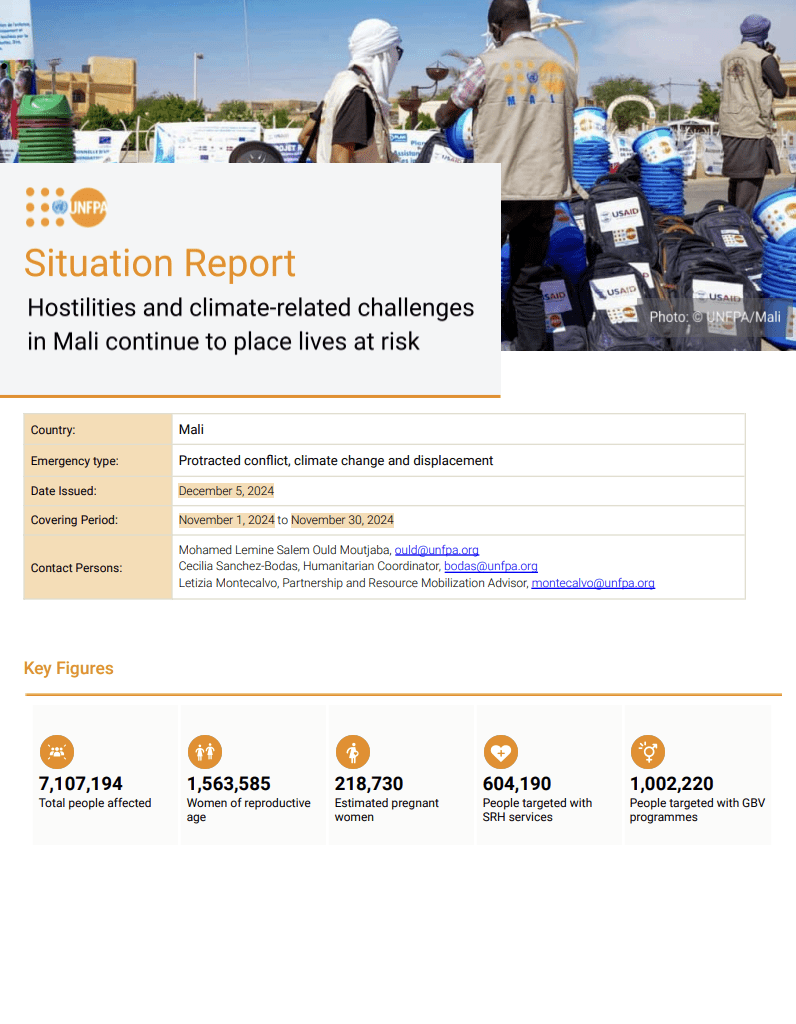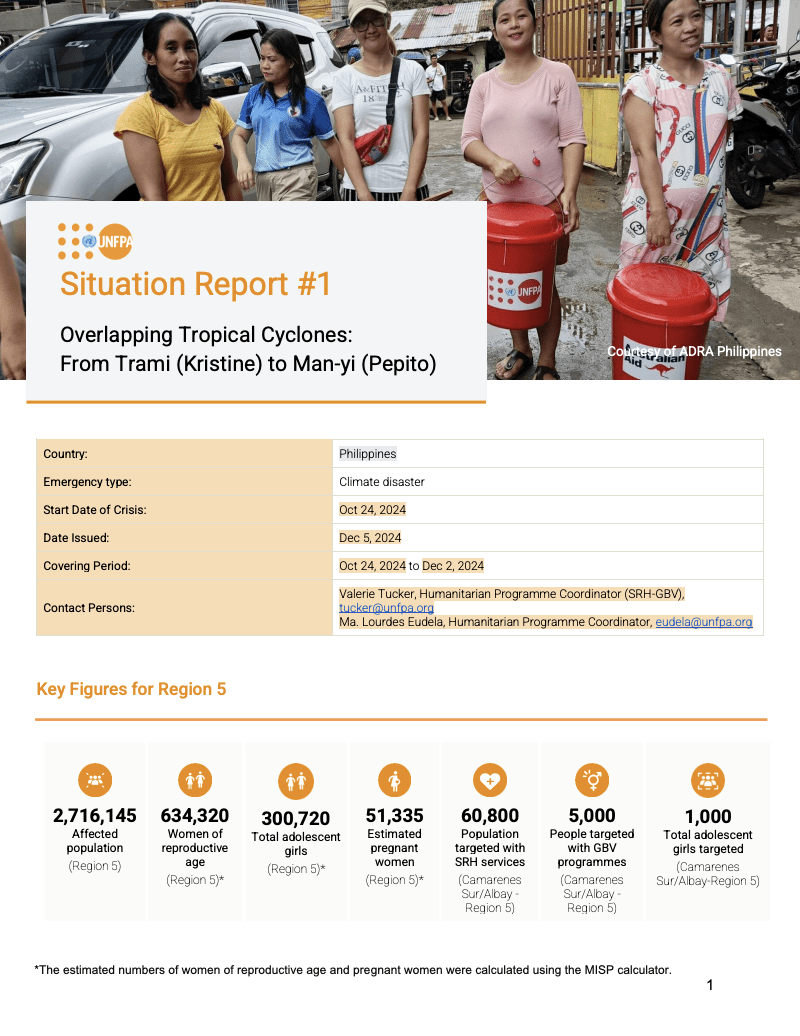
Mali continues to face an escalating humanitarian crisis driven by protracted conflict, severe flooding caused by the Niger River’s rising waters, and health emergencies. The ongoing instability has displaced 73,778 people due to flooding, while conflict and natural disasters have led to 378,363 internally displaced persons, marking a 7 per cent increase since the end of 2023. Flooding has severely affected regions like Timbuktu and Mopti, destroying homes and critical health infrastructure, further restricting access to essential services. These crises disproportionately impact women and girls, heightening risks of gender-based violence (GBV) and limiting access to sexual and reproductive health (SRH) care.
In November, UNFPA intensified its response by supporting 15 mobile clinics across affected regions, providing integrated SRH and GBV services to over 7,000 individuals. Additionally, 851 GBV survivors received holistic care through One Stop Centers, and six safe spaces supported 1,151 women and girls with psychosocial and socio-economic services. UNFPA also distributed dignity kits to 450 women and girls, raised awareness on SRH and GBV, and provided emergency reproductive health kits to 19 health centers, addressing gaps caused by damaged infrastructure. These efforts underline UNFPA’s commitment to delivering life-saving support in the most challenging circumstances.
UNFPA’s response faces a significant funding gap, with only US$ 8.4 million mobilized out of the US$ 15 million required for 2024, leaving 44 per cent unmet. Despite generous contributions from key donors, additional funding is urgently needed to sustain critical interventions in SRH and GBV and to address the escalating needs of affected populations. As the crisis deepens, UNFPA continues to advocate for enhanced support to protect the health and dignity of Mali’s most vulnerable communities.



